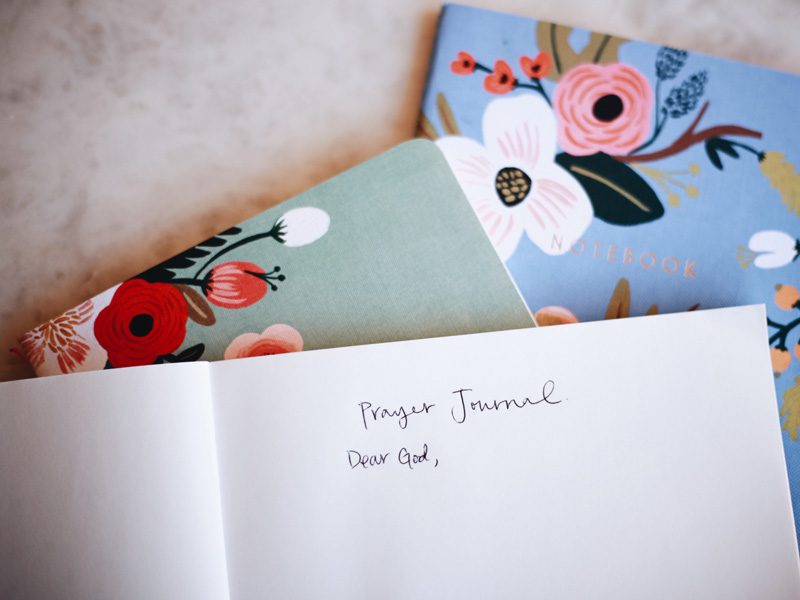With the increase of technology comes the escalation of distraction and an equal veer from the essentials of time and reflection. There is power in prayer and it’s disheartening how we are blanketing its light and ability with the rush of reality. Here is the opportunity to return to not a requirement of, but a response to God. A prayer journal is between us and God. It’s an exchange of letters between us and him. Let this guide be a word to the wise as we form our own.
Create parameters for freedom’s sake, not for structure’s sake.
It’s important to keep a somewhat organized prayer journal, whether that be by marking the date every time we add to it, be it a sentence or a story, or by category, either thematically or weekly. However, structure should act as a looser framework for the house of prayer that will be set in stone as our prayer life continues to grow. Even if we set tabs as ordered reminders as to who, what, when to pray for, allow your journal to be a space in itself to pray personally and expressively, whether that’s by drawing, including photos, or anything else intimately creative. The journal should establish parameters for the liberty to explore and discover the depth and mystery of God’s character.
Always start with thanks.
Sometimes, this will be easy when having a praise report, and other times, it will prove the greatest challenge when coming before God with a demand, a request, a cry, a doubt, an anger. The practice of always entering into a dedicated time of prayer will solidify a perspective of recognition that is placed on who God is as perpetually and unconditionally faithful, rather than on what we get or don’t get out of prayer.

Be bold, honest, and specific.
How many times do we feel like we need to present ourselves before others, let alone God, in a certain way, perhaps perfect? Imagine the transformative and redemptive work that could take place if we were completely ourselves before God—unfiltered, uncensored, unmasked. God knows us that way already, but when we hide the unrefined from God, we keep ourselves from being refined in our right relationship with God.
Wait well.
As a people in pursuit of immediate gratification, we tend to mistake that time of silence from God as a cue to give up and get upset. When prayer is proved powerful, it is because the one praying was patient, persevering, and purposeful. Why? Because it points to a God who is such with us. When we wait well in prayer, deliberately and actively waiting with an expectation for God to show up in a way that is characteristic of him, not of us, it beckons us closer to who God is. That is powerful because it has the power to make us more like our Father.

Ask yourself, why do you pray?
Is it because the church said to do that? Is it because it makes us feel like a good person? Is it because it’s one of the boxes we need to check off? Consider why it is that we pray. Remember who we are praying to, what we are praying for, and what will come from the prayers we pray. Do we pray so our life can be more of this or that, or do we pray so God can be more in our life and in the lives of others? Pray personally and communally. Pray inwardly and outwardly. Pray locally and globally. Pray to be changed. Pray to be the change. Prayer does not have to be either or.
The prayer journal will become an amazing record of the journey that will happen from the time prayers are written to the time they are answered in God’s perfect time. May a prayer journal open our eyes to greater clarity and sharper vision, empowering us with the confidence to articulate the things that make our hearts beat, and may those bring us ever nearer to the things that make God’s heart beat.












